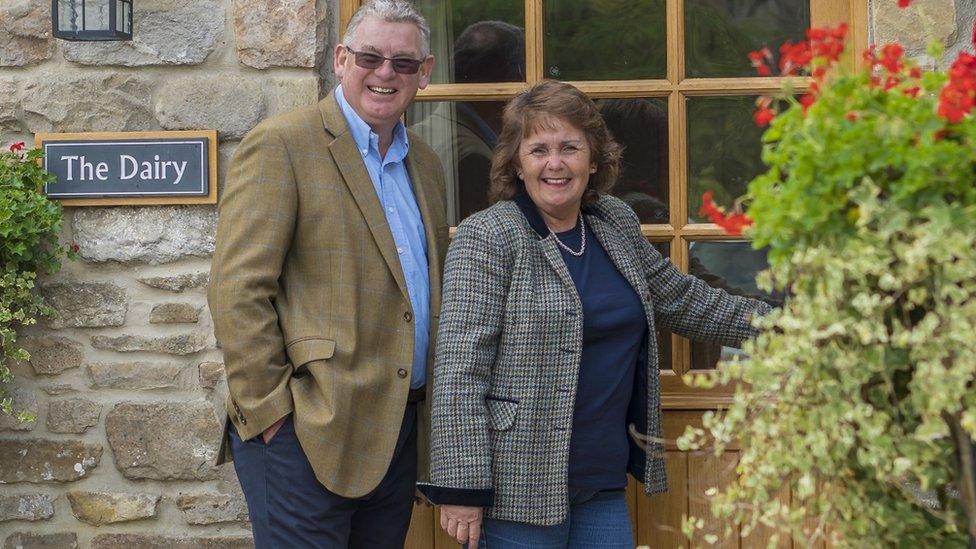Government clarifies coronavirus insurance stance
- Published
- comments

Diane Howarth runs Cottage in the Dales with her husband Andrew
The government has bowed to pressure and changed its stance on insurance to cover firms for coronavirus losses in England.
The government said it would declare coronavirus as a "notifiable disease", a formal classification required by many insurance policies.
Businesses had warned that expected coronavirus losses risked not being covered under existing rules.
Other regions of the UK have already made the change.
Diane Howarth, who runs Cottage in the Dales, a small holiday cottage business in the Yorkshire Dales, had told the BBC she stood to lose up to £8,000 in forward bookings.
"We're a small family business," she said.
"I'm owed £8,000 in overseas bookings - 10% of my turnover - in the next six weeks from guests arriving in June. If they cancel, and I can't claim, that would be catastrophic for us, and many other businesses in the same position."
She urged the government to enact the change quickly, as the "clock is ticking".
But the Association of British Insurers said the government's decision was unlikely to apply retrospectively and also urged holders to check the small print of their policies.
"Standard business insurance policies are designed and priced to cover standard risks, not those that are very unlikely, such as the effects of Covid-19," a spokeswoman said.
National divides
Last month the Scottish and Northern Ireland governments formally declared that coronavirus was "notifiable". They were followed by the Republic of Ireland and earlier this week Guernsey.
It places a legal responsibility on medical professionals to tell health officials of suspected cases immediately.
Under the terms of the Public Health (Control of Disease) Act 1984 and Health Protection (Notification) Regulations 2010 there are 32 diseases that are currently notifiable, ranging from malaria to measles.
But English authorities were yet to add Covid-19 to this list, external, leaving many firms unclear about whether their insurance policies would protect them.
A number of businesses in tourism and hospitality raised the issue with the BBC, and business groups on Tuesday complained to the government at a meeting at the Department for the Environment, Food and Rural Affairs.
Following the meeting, late on Tuesday, the government said it would legally declare coronavirus to be a notifiable disease.
The Department of Health and Social Care said: "We want to ensure any steps taken to protect the public during the Covid-19 outbreak are proportionate and do not come at an unnecessary social or economic cost.
"To mitigate the impact on businesses, we will register Covid-19 as a notifiable disease. This will help companies seek compensation through their insurance policies in the event of any cancellations they may have to make as a result of the spread of the virus."
Ian Wright, chief executive of the Food and Drink Federation, told the BBC: "While the disease remains non-notifiable, insurance will not cover them against some losses."
The notification process gives important powers to local authorities, and acts as an important trigger for insurance against losses known as business interruption cover.
